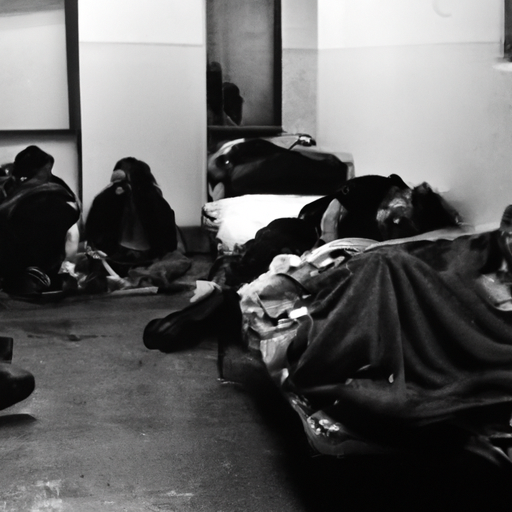Addressing the Opioid Crisis: Ontario Parties Sponsor Beds At Local Shelter
Overview of the Opioid Crisis in Canada
Canada has been grappling with a growing opioid crisis in recent years, with opioid-related hospitalizations and deaths increasing at an alarming rate. Every day, approximately 17 Canadians are hospitalized due to opioid poisoning. The damage caused by the crisis reverberates throughout our communities, affecting not only individuals but also their loved ones, healthcare systems, communal services, and society as a whole.
A consequence of the opioid crisis is the strain it places on homeless shelters. Many individuals who are homeless struggle with addiction issues, including opioids. This has led to a need for increased support services and appropriate measures to prevent opioid overdoses within shelter settings.
Mobilizing to Address the Opioid Crisis
In response to these challenges, two local Ontario parties recently sponsored a bed at Grace Inn Shelter. This effort was carried out as part of the Canadian opioid abatement class action aimed at providing the necessary support to individuals who are homeless and affected by the opioid crisis in the community. As documented in a recent article in Quinte News, this initiative has shown a positive impact for those in desperate need of assistance.
Effects Noted According to the Source
The combined efforts have brought a significant change, especially in addressing the dire consequences of the crisis:
- Firstly, it has provided immediate necessities such as food and shelter to the homeless.
- Secondly, it has also created an environment for support, acceptance and an opportunity for recovery.
- Thirdly, it has reduced crime rates associated with drug use by providing a controlled and supportive environment for recovery.
Efforts to Combat The Crisis
The sponsorship includes the compulsory training on the use of naloxone – a drug used to counteract the effects of an opioid overdose. Additionally, the shelter staff receives proper training to handle any emergency related to opioid overdose that may arise. This is a strong step towards reducing the number of opioid overdose-related cases in the country.
Key Takeaways
- Increased awareness and community involvement are vital in addressing the opioid crisis in Canada.
- Shelters play a crucial role in managing the crisis and could be potential focal points for prevention and recovery efforts.
- Training on the use of naloxone and other precautionary measures in shelters provides an extra layer of protection for those using opioids.
- Community leaders and local parties must come together to draft additional strategies and initiatives to address this crisis.
Conclusion
In conclusion, the opioid crisis is an ongoing public health crisis in Canada that requires dedicated and planned interventions at all levels. Sponsoring beds at local shelters and training on the use of naloxone is just one example of how local communities can pitch in to combat the effects of the crisis.
As we are all stakeholders in this society, we must continue to partner with government bodies, health-care systems, and other organizations in the fight against the opioid crisis. Public education, awareness, and community support are key elements in addressing this issue. Let us all strive to contribute in our way to better the lives of those affected by the opioid crisis in Ontario and across the country.
